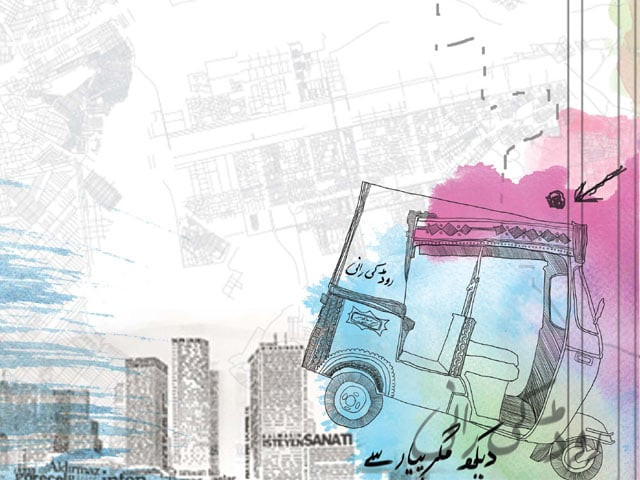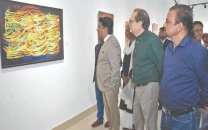Our writers need to switch back to Urdu: Jamal
Panellists talk about writing in different languages, standing up for one’s own perspective.

Moderator Nabiha Shaikh started off the discussion with a question: who speaks for whom in today’s world?
Critic Jonathan Foreman argued that at times, it is an outsider’s writing that reflects the true aspect of a society. “Because they have the ability to look at a crisis in a detached manner.” He said that countries that are going through crises create good writing and novels.
Author of Islamic Mystical Poetry, Mahmood Jamal said that language plays an important role in understanding the crux of a work. “Having said that, I have not come across a great novel by a Pakistani as yet,” he added candidly, irking many people in the audience.
A woman asked him what he had to say about Khuda ki Basti, Udaas Nazrain or Aag ka Darya? He replied that these novels have their own value but there is a need for a novel which touches the core of a society by bringing out the truths about it and resulting in gradual transformation. “We are going through an amazing transformational period and for that, our writers need to switch back to writing in Urdu. Our language and poetry is so overwhelming it can bring huge change within our society. We need another poet like Faiz.”
Anja Kampmann, agreed: as soon as you own up to your culture it gets easy to write anything. But the feeling needs to come from within you. Many times people feel that the writings on Pakistan are a bit shallow but, “I have seen many writers who write about Pakistan only after researching for months.”
Foreman pointed out that Salman Rushdie has never been to Pakistan and his writings on the country have been really controversial. “It depends solely on the perspective and the frame of mind of every person.”
“You have to be true to your essence. If you are writing on terrorism and you are keeping in mind how much it will be appreciated in the West, then it is a mistake. You need to have your own take on things,” Jamal said.
As for translating Urdu literature into English, speakers said that Pakistani writings are being translated all over the world and it says a lot about the interest the country continues to generate. “For a German or an Italian writer, it would be really difficult to break through because German literature has not been translated that much. But it has a lot to do with the publishers as well. They need a flavour of the month. It can be Pakistan, India or Russia in the coming months,” said Foreman.
All the speakers, while having constructive arguments about a lot of issues, agreed that there is no such thing as the East and the West divide when it comes to writers. “It is just about hitting the right chord, and you can do that by living anywhere,” Kampmann concluded.



















COMMENTS
Comments are moderated and generally will be posted if they are on-topic and not abusive.
For more information, please see our Comments FAQ